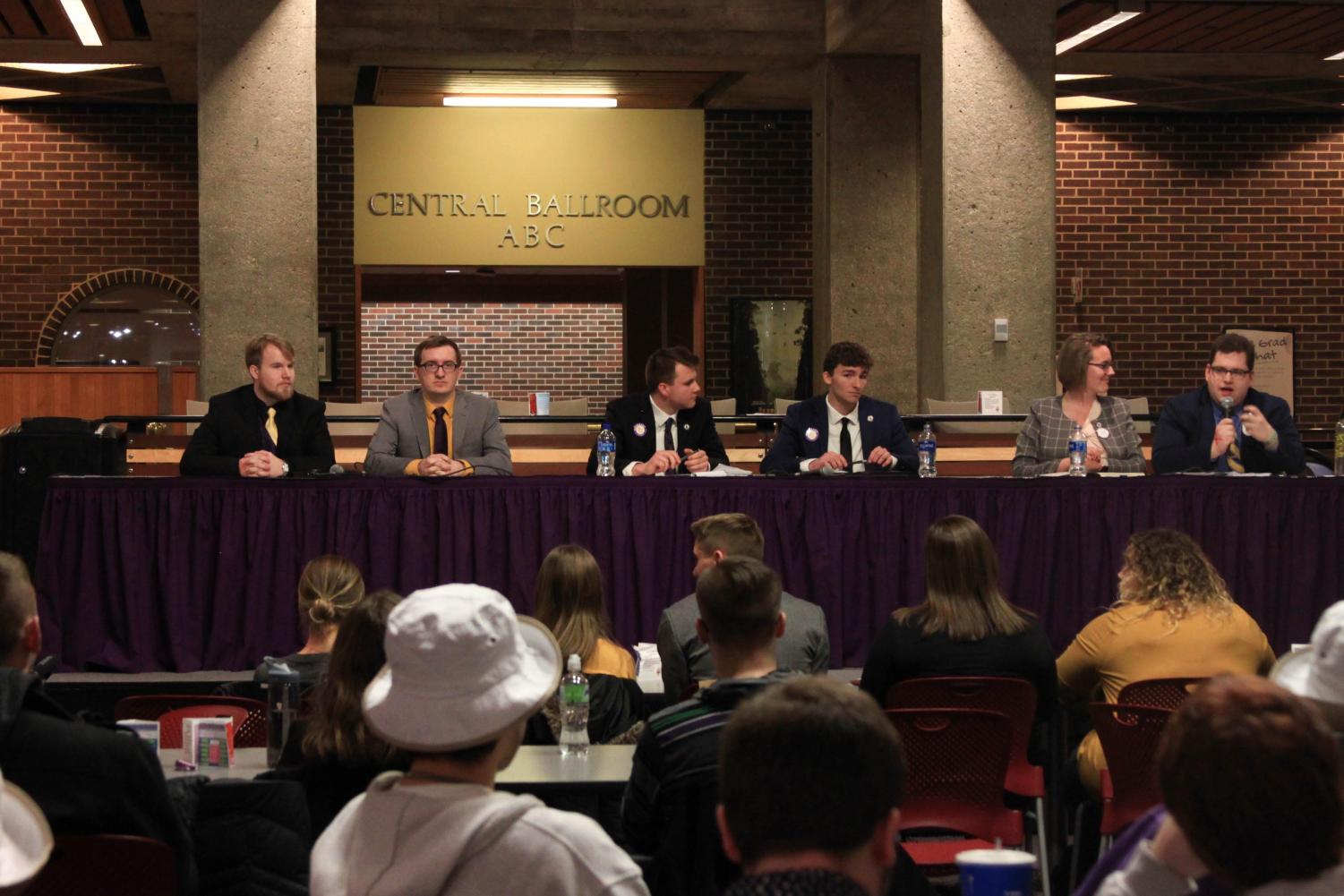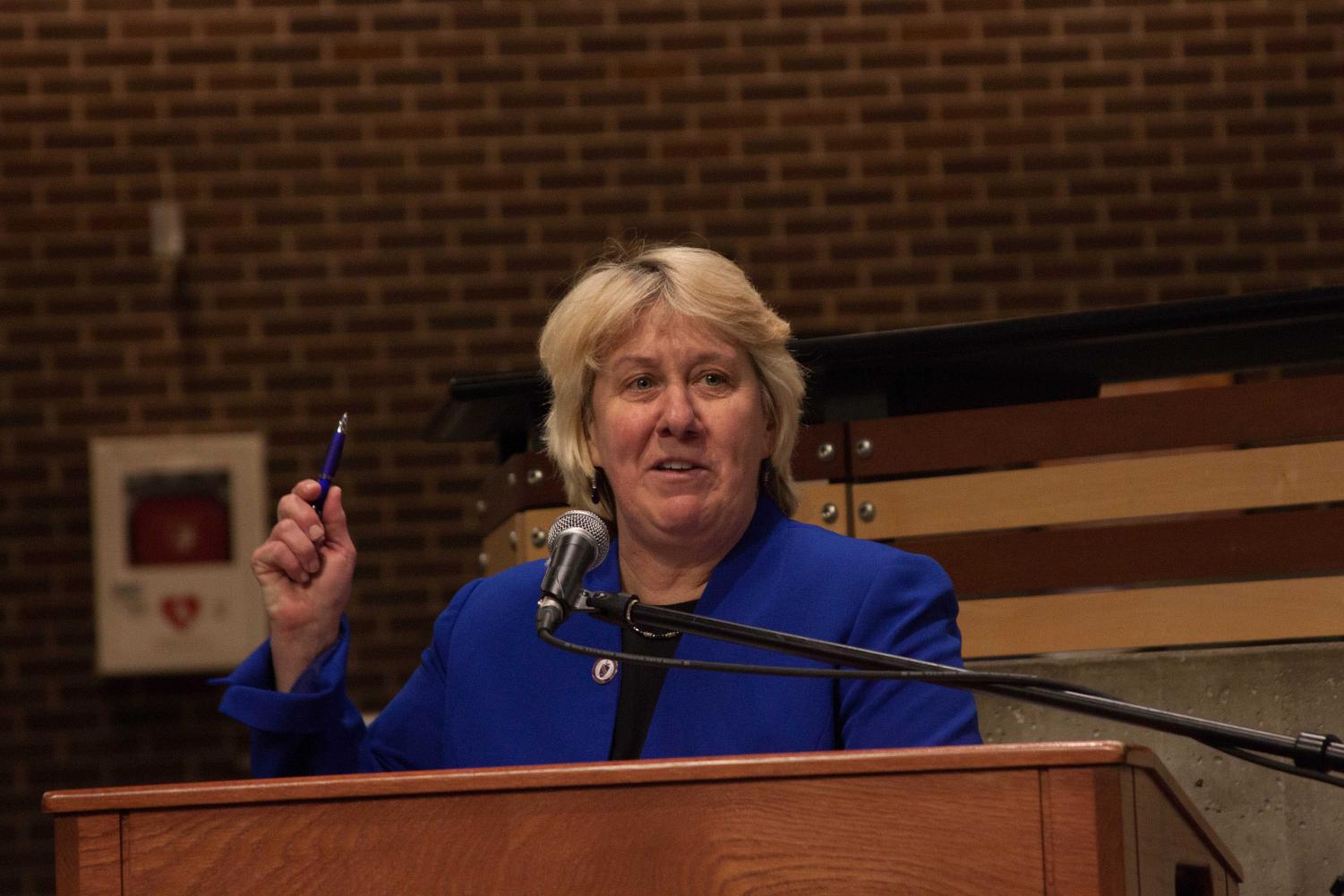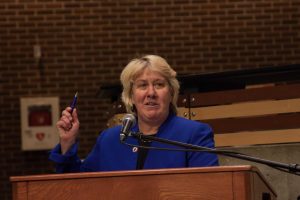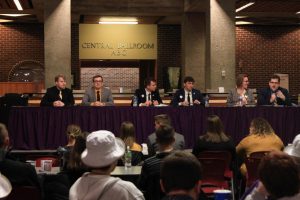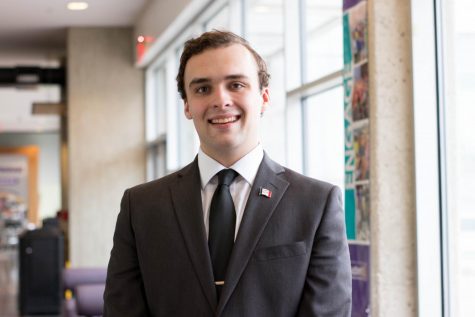NISG hosts 2018 election debate
Feb 26, 2018
This past Thursday, Feb. 22, Northern Iowa Student Government (NISG) candidates faced off in the annual NISG Debate. The debate, held in Maucker Union, ran from 6:30 p.m. to 9:00 p.m. The debate was moderated by Vice President of Student Affairs Paula Knudson.
Prior to the presidential debate, NISG Senate candidates from each of UNI’s colleges had an opportunity to take the floor and express their ideas to the crowd of roughly 100 attendees. According to the NISG Constitution, each college is allotted one senator to represent them in the Senate, with an additional senator added for every 750 students enrolled in that college.
Here is the Senate breakdown for this coming year, and the candidates running to fill those seats:
The College of Business will have four seats. The candidates include Amela Music, Adalberto Castrejon, Lucas Gremler, Hugh Zehr, Laura Jimenez and Jacob Levang.
The College of Education will have four seats. Trevor Fletcher is the only candidate running.
The College of Humanities, Arts and Sciences will have six seats. The candidates include Angela Speltz, Jacob Stites, Conner McMillen, Carlos Aldape Jr., Kristin Rasmussen, Nathan Salts, Thomas Rowe and Katie Wempen.
The College of Social and Behavioral Sciences will have three seats. The candidates include Jacob Harberts, Mahlia Brown, Michael Richardson Jr. and Issak Esperson.
The Graduate College will have two seats; however, no one has declared candidacy.
Undecided, General Studies and Interdisciplinary students will have two seats. The candidates are Ryan Frank and Caleb Gipple.
After the Senate candidates had spoken, the debate moved to the presidential tickets: Drew Stensland and Kristen Ahart, Tristan Bernhard and Cole Malcolm and Seán Dugan and Chad Schafer. Each of the tickets focused on different aspects of their platform.
Stensland and Ahart focused on their proposal for a “Panther 101” class.
“We’re under a current revisioning of the current LAC core,” Ahart said. “Drew and I saw this as a perfect opportunity to bring in a class that would streamline the information that our students in class are getting in regards to student success. This would be available to transfer and first year students. That would bring in involvement of student organizations, local community and all of the things that are important for our first year students to know.”
Stensland and Ahart also mentioned the need for contracts and other documents on campus to be in more than one language. The two also called for an expansion of current sexual assault educational programming.
Dugan and Schafer focused on the need for expanded and improved transfer student programs.
“Chad and I are both transfer students,” Dugan said. “One of the things that we experienced first-hand at UNI is how that transfer experience is not up to par with the freshman experience. One of the things that we would like to work on is making sure that we bring the same orientation, the same introductions, to our universities for every incoming student and not just the ones coming straight out of high school.”
The two also aim to improve diversity in student organizations and mental health on campus.
Bernhard and Malcolm called for continued lobbying efforts at the state house.
“A big part of this is our lobbying initiatives,” Bernhard said. “Those are the experts we trust the most, because although it’s not something that students see all of the time, having a lobbying presence at the state capital is absolutely vital to continuing to do what we do so well on campus.”
Bernhard and Malcolm also spoke about revising the Liberal Arts Core and improving accessibility and inclusion of students living off-campus.
Polls will open Tuesday, Feb. 27, at 7 a.m. and will close on Wednesday, Feb. 28, at 7 p.m.


